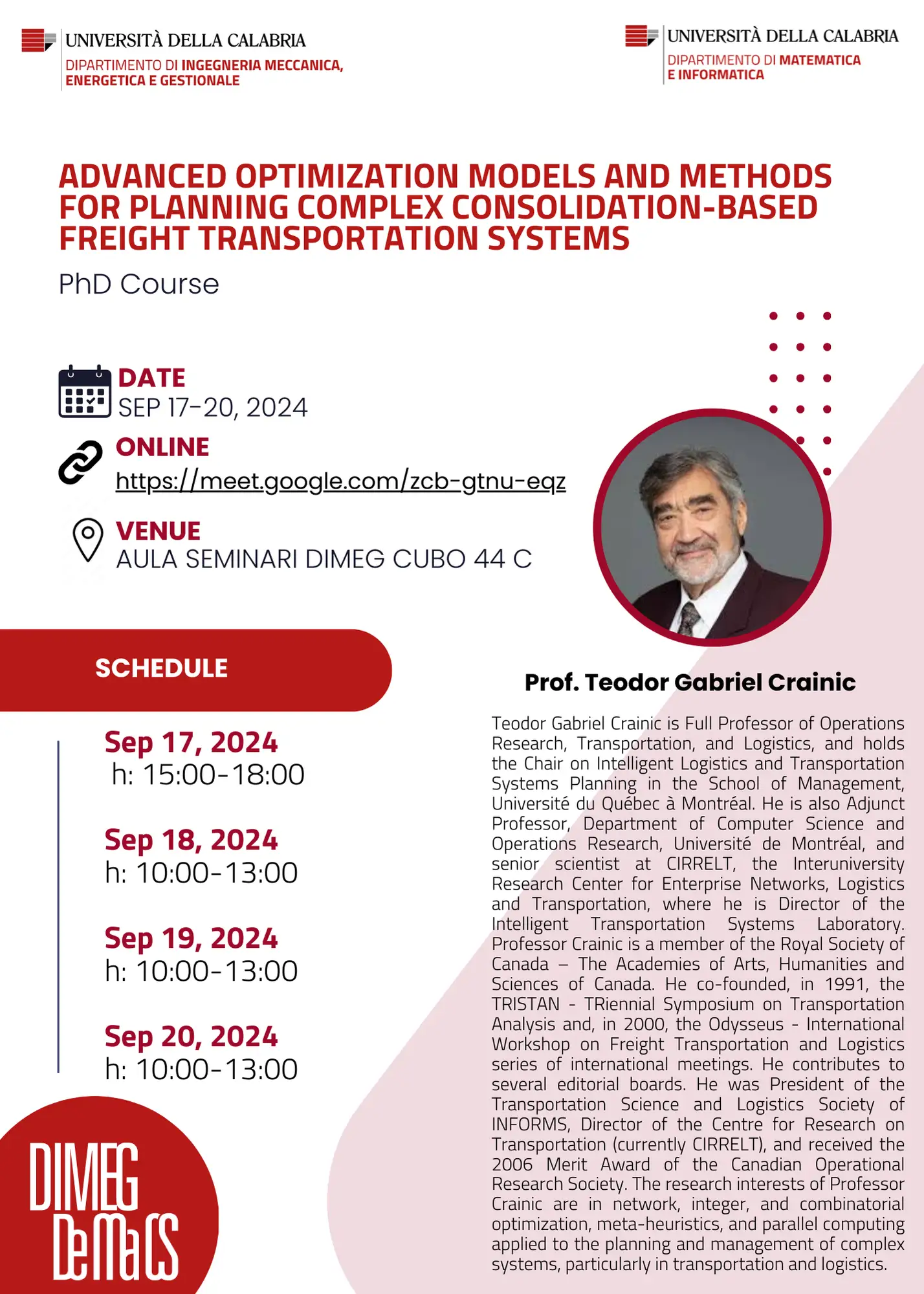Pubblicata Martedì 03 Settembre 2024 10:02
Seminario: Advanced optimization models and methods for planning complex consolidation-based freight transportation systems

Transportation and logistics are essential to our society’s development and achievements. Indeed, most social, economic, and leisure activities require efficient, in terms of cost, time and reliability, movements of people, goods, and information performed by logistics and transportation systems and networks. Yet, these systems also raise major challenges, in terms of pollution, congestion, energy consumption, security, etc. Population, cities, the economy and trade will continue to grow for the foreseeable future (pandemics hurt but also raise challenges and opportunities), resulting in a continuously growing, diversified and atomized demand for transportation. How we address these challenges and build efficient transportation and logistics networks that support this growth is critical to the economic, social, and environmental, that is, the “sustainable” development of our society. Efficient and intelligent methods for system analysis, planning, and management are required to address these goals, and Operations Research is at the core of this intelligence.
The lectures address important planning problems in logistics and transportation, focusing on the tactical planning of consolidation-based systems, within the context of both traditional carriers and the new business and organizational models for logistics and transportation, e.g., City Logistics, Physical Internet, and Synchromodality. Network design makes up a broad Operations Research methodology class providing the preferred modelling and algorithmic tools to study and support decision-making in such challenging contexts.
The lectures focus on the main planning issues and challenges, and the network design
methodology proposed to address them, emphasizing the modelling aspects. The goal is to provide students with the means to acquire knowledge and develop skills and capabilities for analysis and modelling in application and research contexts. The main themes addressed and schedules:
• Lecture 1.Transportation and logistics; Consolidation; Planning and design.
•Lecture 2. Service network design (SND) for tactical planning; Selecting services, schedules, terminal workloads, load itineraries; Time-dependent problems.
• Lecture 3. Enhanced SND: Managing resources; Multi-tier systems; Capacity planning.
• Lecture 4. SND for planning “new” transportation and logistics systems: Multistakeholder systems with resource sharing, e.g., City Logistics, Physical Internet, Synchromodality).




